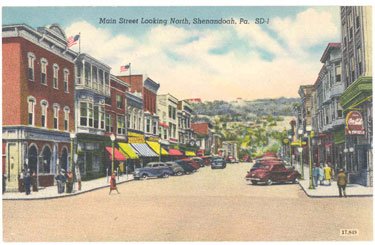Rod Dreher reviews Yuval Levin’s The Fractured Republic: Renewing America’s Social Contract in the Age of Individualism:
According to Levin, the great conceptual barrier to reforming and modernizing American politics is baby boomer nostalgia for the 20th-century Golden Age of their memories. He writes:
Democrats talk about public policy as though it were always 1965 and the model of the Great Society welfare state will answer our every concern. And Republicans talk as though it were always 1981 and a repetition of the Reagan Revolution is the cure for what ails us. It is hardly surprising that the public finds the resulting political debates frustrating.
What neither side can see is that they expect the impossible. Generally speaking, liberals want maximal individual liberty in personal life, especially on matters related to sexual expression, but demand more state involvement in the economy for the sake of equality. Conservatives desire maximal economic freedom but lament the social chaos and dysfunction—in particular, the collapse of the family among the poor and working classes—that afflict American society. The uncomfortable truth is that what each side loathes is the shadow side of what it loves.
As Alan Ehrenhalt pointed out in The Lost City, his 1995 book about Chicago in the 1950s and 1960s, contemporary people lie to themselves about what things were like in the Golden Age. The thick social bonds and sense of community Americans enjoyed back then came at a significant cost—including cultural conformity and a lack of personal and consumer choice—that few of us today would tolerate. Ehrenhalt wrote that beginning in the 1960s, however, Americans embraced “the belief in individual choice and suspicion of any authority that might interfere with it.â€
America’s political, social, and economic life of the last half-century has been a working-out of that belief—thus, the Fractured Republic. The inability of the U.S. political class, now dominated by boomers, to deal with the consequences prevents them from coming to terms with realities of the 21st-century world. We are stuck in what Levin describes as a “politics of dueling nostalgias.â€
Read the whole thing.






GoneWithTheWind
I am 73 and I can remember that 50 years ago the country seemed safer, the people seemed happier and the children seemed to do better and grow up to be better adults. It appears to me that many/most of the changes in the last 50 years that have made things worse were either the unintended or intended result of liberal policies and laws. Would it be wrong to wish that teen girls would wait until they are married to have children? Would it be wrong to want teens and adults to learn to be self-supporting and not live on welfare the rest of their life? Would it be wrong to want people to not destroy their own lives and the loved one’s lives by choosing to live in an addiction?
There are some good things that have happened in the last 50-60 years or so but can’t we keep the good and reverse the bad? Must we accept the bad things our liberal leaders force on us?
Please Leave a Comment!